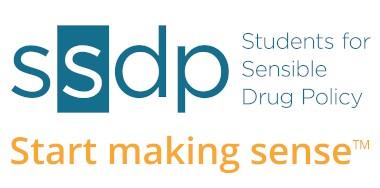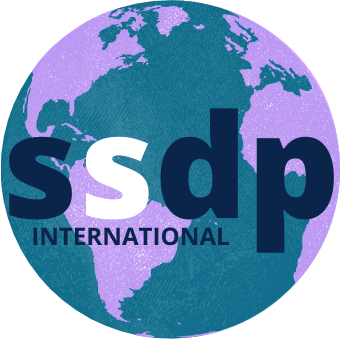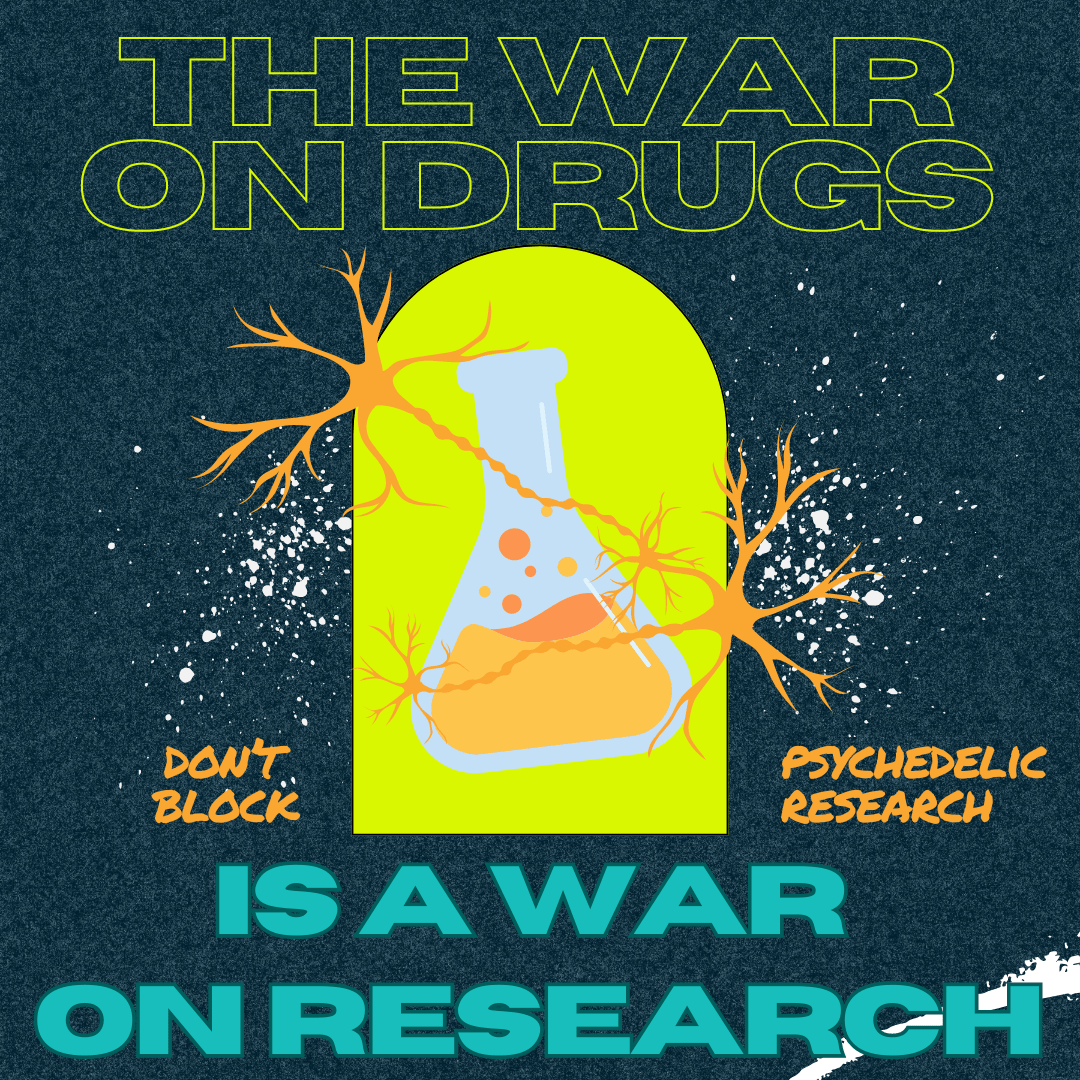
Contact:
Gina Giorgio
Director of Strategy and Development
Students for Sensible Drug Policy
gina@ssdp.org
DEA SCHEDULES FIRST-EVER TWO WEEK PUBLIC HEARING ON PSYCHEDELICS IN ONGOING STUDENT-LED EFFORT TO PREVENT THE WRONGFUL SCHEDULING OF VITAL RESEARCH CHEMICALS WITH PROMISING MEDICAL POTENTIAL
Since 2022, Students for Sensible Drug Policy (SSDP) Has Led the Fight to Prevent the DEA From Scheduling DOI and DOC, Which Would Create Serious Impediments to Potentially Life-Saving Research
[Washington D.C., August 20, 2024] — Students for Sensible Drug Policy (SSDP)—a nonprofit representing more than 20 graduate students, post-docs, staff scientists, and professors who have been actively involved in research using 2,5-Dimethoxy-4-iodoamphetamine (DOI) and 2,5-Dimethoxy-4-chloroamphetamine (DOC)—will continue their multi-year effort to prevent the Drug Enforcement Administration (DEA) from effectively blocking crucial medical research, in an unprecedented ten-day long public hearing.
This extensive hearing will take place November 12 through 25, ensuring that all witnesses have the opportunity to speak. While TV cameras will not be permitted, there is a possibility of a livestream to make the proceedings accessible to the public. Members of the press are welcome to attend and observe the hearing from the gallery. This hearing marks a crucial step in the transparent evaluation of these chemicals and their potential reclassification.
SSDP’s Legal Battle Against the DEA
SSDP has been leading the effort to save DOI and DOC research since April 2022, when the DEA announced their intention to move the two psychedelic research chemicals that have been used safely for decades to Schedule I of the Controlled Substances Act—effectively blocking research. Within weeks, SSDP’s Science Policy Committee—a group of PhD students and other researchers who are fighting back against the War on Drugs—leapt into action, demanding a hearing. After extensive legal back-and-forth, the DEA backed down in August 2022, withdrawing their proposal.
“DOI has been amongst the most widely used compound to study the role of the serotonin 2 receptor of the last several decades. The serotonin 2 receptor is widely accepted as the primary target of psychedelic drugs—which have seen incredible press coverage as possible treatments for depression—but are also critically involved in learning and memory, and mood. The DEA’s proposed rulemaking to place DOI in Schedule I of the Controlled Substance Act defies scientific study and will make it more difficult for researchers to work on the serotonin 2 receptor,” says Elijah Ullman, a PhD Candidate in Molecular and Systems Pharmacology at Emory University, who joined SSDP as a high school student in 2012 and now serves as the chair of SSDP’s Science Policy Committee.
Unfortunately, the fight was not over. On December 23, 2023, perhaps imagining the move would go unnoticed during the end-of-year holiday season, the DEA again proposed scheduling DOI and DOC. On January 4th, 2024, SSDP again filed a request for a hearing challenging this move, citing the lack of substantive evidence and the negative impact on research. At the same time, Robert Rush, an attorney with a practice based in Denver, CO, who represents three independent researchers, also filed a petition to challenge the DEA’s scheduling. SSDP is now working hand-in-hand with Rush, who is spearheading the legal strategy for the case.
“The DEA, for too long, has had a rubber stamp in their decision-making processes. They have not had to defend their actions. I am looking forward to having the DEA defend its decision to criminalize an important research tool that it admits is not being diverted for illicit use,” says Rush. “During the nine days of our hearing, I look forward to the DEA being called to explain themselves in blocking critical research that so many Americans struggling with serious issues may benefit from. It is time they answered to the American public.”
The Flawed DEA Scheduling Process
This court hearing follows SSDP’s prehearing statement filed in the DEA Administrative Court on July 23rd, 2024, challenging the DEA’s attempt to add the research chemicals—which are currently unscheduled—to Schedule I of the Controlled Substances Act, which defines Schedule I drugs as those with a high potential for abuse, no currently accepted medical use in treatment in the United States, and a lack of accepted safety for use under medical supervision.
“DOI and DOC are important research chemicals with basically no evidence of abuse. We are excited to fight on behalf of SSDP scientists so that they can continue the critical work they are doing with these substances,” said Brett Phelps, Esq, an SSDP alum and legal counsel for the youth-driven drug policy nonprofit.
The DEA’s decision-making process for scheduling these substances appears to lack scientific rigor and transparency. Categorizing these chemicals as Schedule I—indicating that they have no accepted medical use and a high potential for abuse—contrasts sharply with their use in research settings and their minimal recreational usage. This flawed approach undermines the agency’s credibility and impedes critical scientific progress.
Scheduling DOI and DOC as Schedule I substances further imposes onerous financial and bureaucratic obstacles on researchers. Obtaining a Schedule I license involves a daunting array of red tape and substantial costs, which can be prohibitive for many research institutions, particularly smaller labs and academic departments.
The Importance of DOI and DOC in Research
DOI and DOC are essential research chemicals in pre-clinical psychiatry and neurobiology whose status as unscheduled compounds has made them de facto tools for researchers studying serotonin receptors.
“The overwhelming consensus of the scientific community who studies serotonin receptors understand DOI and DOC are critical research compounds without recreational abuse,” says Ullman. “Yet the DEA continues on an anti-scientific tirade of ignoring facts,” says Ullman.
DOI in particular has been a cornerstone in neuroscience research due to its high selectivity for the 5-HT2A serotonin receptor, a critical component in understanding and potentially enhancing the therapeutic effects of psychedelics. DOI’s use in the lab ushered in a new era of psychiatric drug discovery since it was used to map the localization of an important serotonin receptor in the brain critical in learning, memory and psychiatric disease. Over 80% of the antidepressant drugs on the market affect the serotonin system.
Over the past two decades, DOI has been cited in more than 900 research articles, contributing significantly to our understanding of complex neural mechanisms and offering potential pathways for breakthrough treatments. Recent studies utilizing DOI have shown encouraging results in managing pain and reducing opioid cravings, offering a beacon of hope in the ongoing opioid crisis.
“DOI and DOC could lead to significant breakthroughs in treating some of today’s most challenging health issues,” says SSDP Executive Director Kat Murti. “This is not just about keeping two chemical compounds available for research; it’s about preserving the integrity of scientific inquiry, advancing medical treatment, and ultimately, impacting lives positively.”
Students Lead the Charge
SSDP has always empowered students to be the catalyst for change, driven by a passion for science and justice, and the fight to preserve access to DOI and DOC has been spearheaded by young researchers many of whom are currently engaged in PhD work. Their efforts have shown that students, when given the right tools and support, can drive significant policy shifts and protect the integrity of scientific research. They are not just participants; they are leaders in the fight to defend the truth and expand our understanding of human health.
Elijah Ullman’s journey is a testament to this. Starting in SSDP as a high school student in 2012, he has grown through the organization, combining his deep scientific knowledge with his advocacy skills. Now, as he stands on the brink of defending his PhD, Elijah is also defending the science that inspired him—ensuring that crucial research, like studies on the serotonin 2 receptor, can continue to thrive. His story is a powerful reminder that with dedication, mentorship, and the courage to stand up for what’s right, students can truly change the world.
“In SSDP, I found no shortage of mentors to guide me through the political process of getting involved, active, and helping to pass legislation. The organization taught me how a group of people can come together to change the world. Now as a PhD Candidate in Molecular and Systems Pharmacology at Emory University, set to defend my thesis in the next few months, I get to take all the skills I’ve learned, political and scientific, and combine them to impact policy,” says Ullman. “With the upcoming hearing, we have the once-in-a-generation opportunity to stand up for the scientific community and reasonably communicate data. I am excited to be a scientific steward in protecting researcher’s abilities to understand human health.”
SSDP Director of Strategy and Development Gina Giorgio thinks the DEA’s move in favor of more transparency could indicate that prohibition-minded federal regulators are finding it harder to hide from the science.
“As bureaucratic institutions start to see the scientific value in these compounds, we are reminded that the future of mental health care is in our hands,” Giorgio told Filter. “Young leaders and researchers are the catalysts for change, pushing forward the boundaries of legislation and research to create a more compassionate, evidence-based approach to drug policy.”
With chapters on campuses and in communities across the country, Students for Sensible Drug Policy (SSDP) is the largest national youth-led network dedicated to ending the War on Drugs. Our national staff, Board of Directors, chapters, and alumni work together to replace the disastrous War on Drugs with policies rooted in evidence, compassion, and human rights, at a grassroots level.
###
For more information, please visit: https://ssdp.org/dont-block-psychedelic-research/



